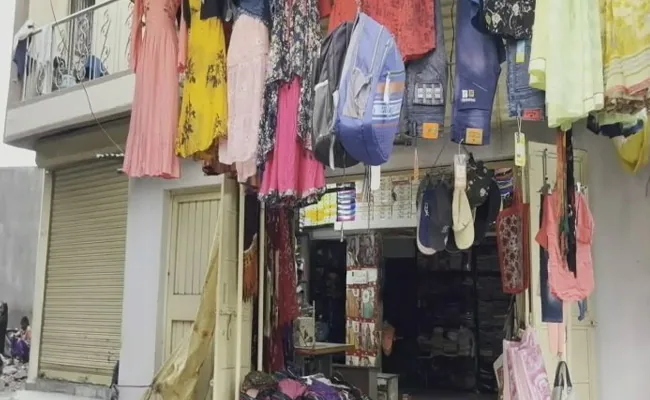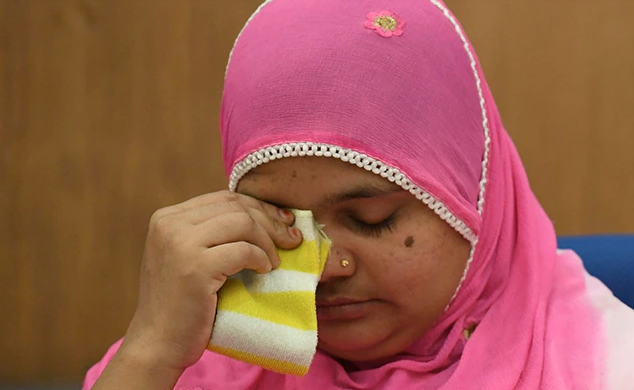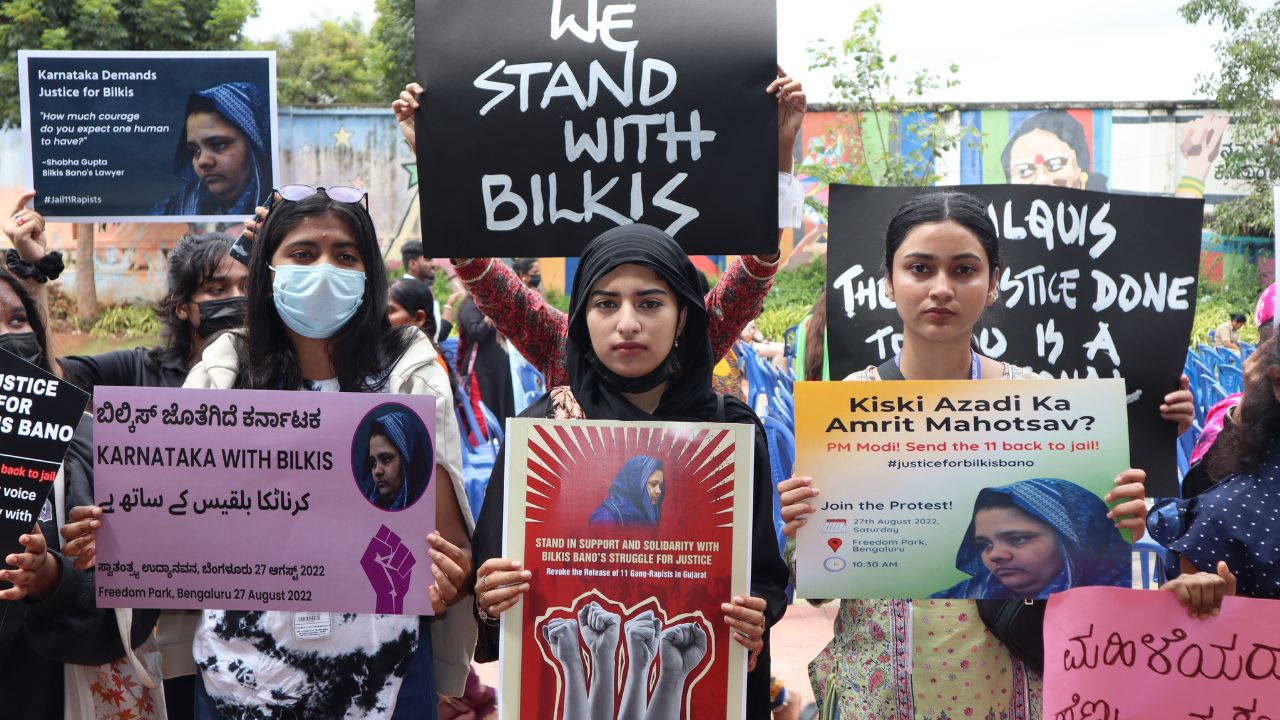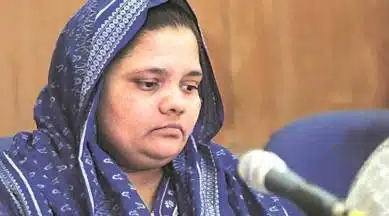Under the Gujarat government’s remission policy, eleven convicts who were given life imprisonment in the 2002 Bilkis Bano case, were released from the Godhra sub-jail on August 15, 2022.
Updates from Randhikpur

In Randhikpur, a firecracker seller is doing business directly across the street from Bilkis Bano’s home. The stall belonges to Radheshyam Shah, who slaughtered Bilkis Bano’s family members and sexually assaulted her. While, Bilkis left this house years ago.
Bilkis stays away from the village to avoid further danger. All of the convicts live nearby her old residence. With a population of barely 4000 people, Randhikpur is situated in Gujarat’s Dahod district.
“We are innocent. Have you ever seen an uncle and a nephew rape a victim in public? Does the Hindu community experience this? Hindus don’t do that,” Govind Nai, one of 11 life-term convicts in the 2002 Gujarat riots case who were prematurely released by the BJP’s state government, made this argument.
In July, 2017, two witnesses who had testified against Govind Nai in the Bilkis Bano case alleged that he had threatened them.
Since 2002, Bilkis Bano has never returned to the village. Her family rented her previous residence to a Hindu woman, who sells clothes.
Rajubhai Soni, another convict, was at his jewelry store but left when he saw reporters with cameras.
What is the Bilkis Bano case? Why were the convicts granted bail?

On March 3, 2002, during the post-Godhra riots, Bilkis was gangraped and her three-year-old daughter, Saleha was one of 14 people killed by a mob in Limkheda Taluka of Dahod district. This horrifying incident occurred when Bilkis was 5 months pregnant, while she was just 21 years old at the time and her husband was also away.
The Gujarat government cited the Jail Advisory Committee’s (JAC) an “unanimous” remission to release the convicts for their “good behavior.”
A Mumbai special court sentenced the convicts to life imprisonment for gangraping and killing seven members of Bilkis Bano’s family. Later, the Bombay High Court upheld the verdict.
The 1992 remission policy of the Gujarat government did not contain any prohibitions on the early release of people convicted of rape or life sentences. On August 15 2022, the Gujarat government granted bail to 11 convicts in the Bilkis Bano case when the whole country was celebrating “Azadi ka Amrit Mahotsav.”
The Gujarat Government has defended its decision to grant remission to the eleven convicts in the Bilkis Bano case in an affidavit submitted to the Supreme Court of India. The government claimed that they had given the prisoners remission since they had served a total of 14 years in prison and had “Good Behavior.”
Convicts out on parole even before getting bail
Soon, after it was made public that the central government had permitted the early release of 11 convicts who had been given life sentences in the Bilkis Bano case, the Gujarat government’s affidavit to the Supreme Court reveals that 10 of them had already spent more than 1,000 days outside of jail, even before the remission.
The affidavit of the Gujarat government states that the 11 convicts were out of prison for an average of 1,176 days, before they were granted bail. All of them were out of prison for more than 1000 days prior to their bail order, with the exception of Bakabhai Vahoniya, 57, who was released after 998 days.
Citizens protesting against the government’s decision

The Supreme Court has been requested by more than 6,000 citizens, including women, grass-roots activists, and human rights advocates, to revoke the sentences that were granted to 11 men, who were found guilty of rape and murder in the 2002 Bilkis Bano case.
In a single statement, they said that the remission of sentences for the 11 men who had been found guilty of gang rape and mass murder “will have a negative impact on every rape victim who is advised to “believe the system,” “seek justice,” and “have confidence.”
The civil rights groups, who are protesting against the Gujarat government’s bail order include – Pragatisheel Mahila Manch, Parcham Collective, Jagrit Adivasi Dalit Sangathan, Amoomat Society, WomComMatters, Saheli Women’s Resource Centre, Gamana Mahila Samuha, Bebaak Collective, All India Progressive Women’s Association, Uttarakhand Mahila Manch, Forum Against Oppression of Women and Centre for Struggling Women and Sahiyar.
Supreme Court to hear fresh plea challenging release of 11 convicts by Gujarat government
The Supreme Court decided on October 22, to hear a new plea from the National Federation of Indian Women opposing the release of all 11 convicts in the Bilkis Bano case. The Communist Party of India’s women’s section, the National Federation of Indian Women, is led by activist Aruna Roy.
The application will be heard simultaneously with the main petition in the case, according to a ruling by a bench comprising Justices Ajay Rastogi and CT Ravikumar.
Two petitions challenging the release of the convicts from a Godhra jail after the Gujarat government granted their request under its remission policy will be heard by the Supreme Court.
Mahua Moitra, a member of the Trinamool Congress, Subhasini Ali, a leader of the Communist Party of India (Marxist), Revati Laul, a journalist and filmmaker, and Professor Roop Rekha Varma have all filed the two petitions in the Supreme Court.












